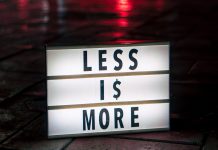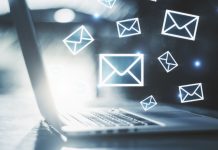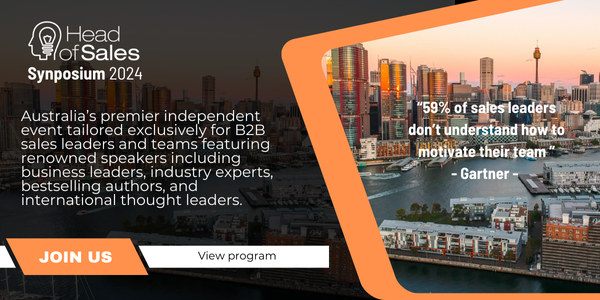I like Google, I like Netflix and I like facebook. These platforms target information to me based on my preferences, my search history and even those things I have scrolled past and decided not to purchase.
Through the power of algorithms (and yes, I am fully conscious of what plays behind these) my digital world is personalised and targeted. In the era of what some call meism and meology this sits quite comfortably.
So, what has this got to do with sales? Everything. B2B and B2C customers are continually bombarded with an avalanche of messages. The demand for personalisation is greater than ever in the world of sales; to enable cut through with a message, it needs to stand out. Credibility statements, value propositions and elevator pitches are all great and essential, but the initial piece of contact and the information shared needs to be targeted and relevant to the person with whom you are trying to engage. The medium of the message is irrelevant; phone, email or social, the importance is the content and the initial grab.
As humans develop, egocentricity changes and alters, as a baby we are completely egocentric and this is perfectly acceptable. As we move through early childhood we become more aware of others, our community and the needs of those around us. If we are left in a state of egocentricity, we develop narcissistic tendencies. That said, throughout our lives we always crave attention and as customers we seek a better experience directed specifically at our needs and requirements. From a business point of view, we are dealing with conflicting strategies; financial, personal, political and social. A salesperson who understands and can rank these priorities will be in a far better position to connect and engage with their client.
As sales professionals we need to be acutely aware of how to personalise a message. Netflix, Uber and Google all achieve this, by adopting various levels of what is known as the Cocktail Effect of Psychology. In other words, the ability for the brain to filter out noise to focus on the things that matter and are relevant to us. If I am in finance, make your message relevant to finance, if I work in agricultural production, craft your message to my sector, if my business is expanding then share content that correlates with my requirements. For the mathematically or visually minded use this formula to anchor this principle: Interest = Benefits x Curiosity.

Finally, the statement that busy people are always busy rings true. As an objection, the phrase “I’m too busy at the moment” is heard all too often by salespeople. Recent research has shown that people dread idleness and that busy people are happier than those who are idle. It is known as the concept of Idleness Aversion. Uber and Netflix understand this, they make screens busy and engaging. And as salespeople trying to craft a message, we must do the same. Our emails and social messages must not only be directed towards the individual, but they also must engage. A link to a white paper, a graphic, a request for further information; the art is to make the time they spend participating in your message valuable and rewarding. And this will happen if it is customised.
To try and make this accessible for all, here are some thoughts on methods to ensure you have the content and knowledge to be relevant and personable in your messaging.
5 Tips to Customise Your Messages
1. Insights from LinkedIn Groups
I am continually surprised that sales executives who focus on verticals or specific markets do not interact on LinkedIn groups. They are a powerful way for one to become informed and knowledgeable about specific sectors within the economy. The big tip is DO NOT SELL YOUR PRODUCTS on LinkedIn Groups. Use it to contribute, discuss and share your insights. I know a salesperson who slowly built up an incredible brand in a niche LinkedIn group, by providing genuine comments and interaction he was the ‘go to’ person for advice and recommendations on software
2. Philanthropic Links
Many businesses support various philanthropic endeavours as part of their broader social responsibility. This is a means to develop rapport and be able to customise information. If there is a real link between the charity they support and you, your network or your business, then this is a way to personalise messaging.
3. Know Your Prospects Customers and Competitors
In a market economy we need to know our prospects well – as you begin to interact with a business ask yourself: Who are their customers/clients? Who are their competitors? And if you don’t know, research. You then look for commonalities as this builds credibility and demonstrates the experience that will instil greater confidence in both you and your product/service.

4. Industry Trends and Compliance
Change is a constant in all industries. Regulators and authorises move and alter compliance and reporting standards. The ability to be informed and aware of these will make you stand out from, other sales professionals. Government departments, standards associations and industry bodies are powerful means by which to stay updated.
5. Knowledge of Thought Leaders
Within most industries there are commentators who are recognised as thought leaders. Some provide best practices whilst others push the boundaries and try and advocate change. Trade journals, conference keynotes and academic papers are often ways to become aware of who these people are and then to follow them on a social platform.
Salespeople who can personalise a message using these psychological tools will not only surprise their clients but also provide value. Time is a finite resource. An investment in preparing a customised message is worthwhile. Quantity vs quality is a perennial argument in sales but as our global cocktail party grows, we want to gain attention and block out the noise of others. Research into your prospects shows that you are committed to be a consultative professional and demonstrates your understanding of how your product or service will benefit them.
Technology provides a myriad of tools that allow you to aggregate information and then find relevant content to share. In a way you need to become a Netflix. Know your customers, know what drives and motivates them and truly know what information they engage with best. The difference is you provide human engagement rather than an AI driven algorithms. Stay personal, stay connected, stay well and enjoy the Cocktail Party of life.




























